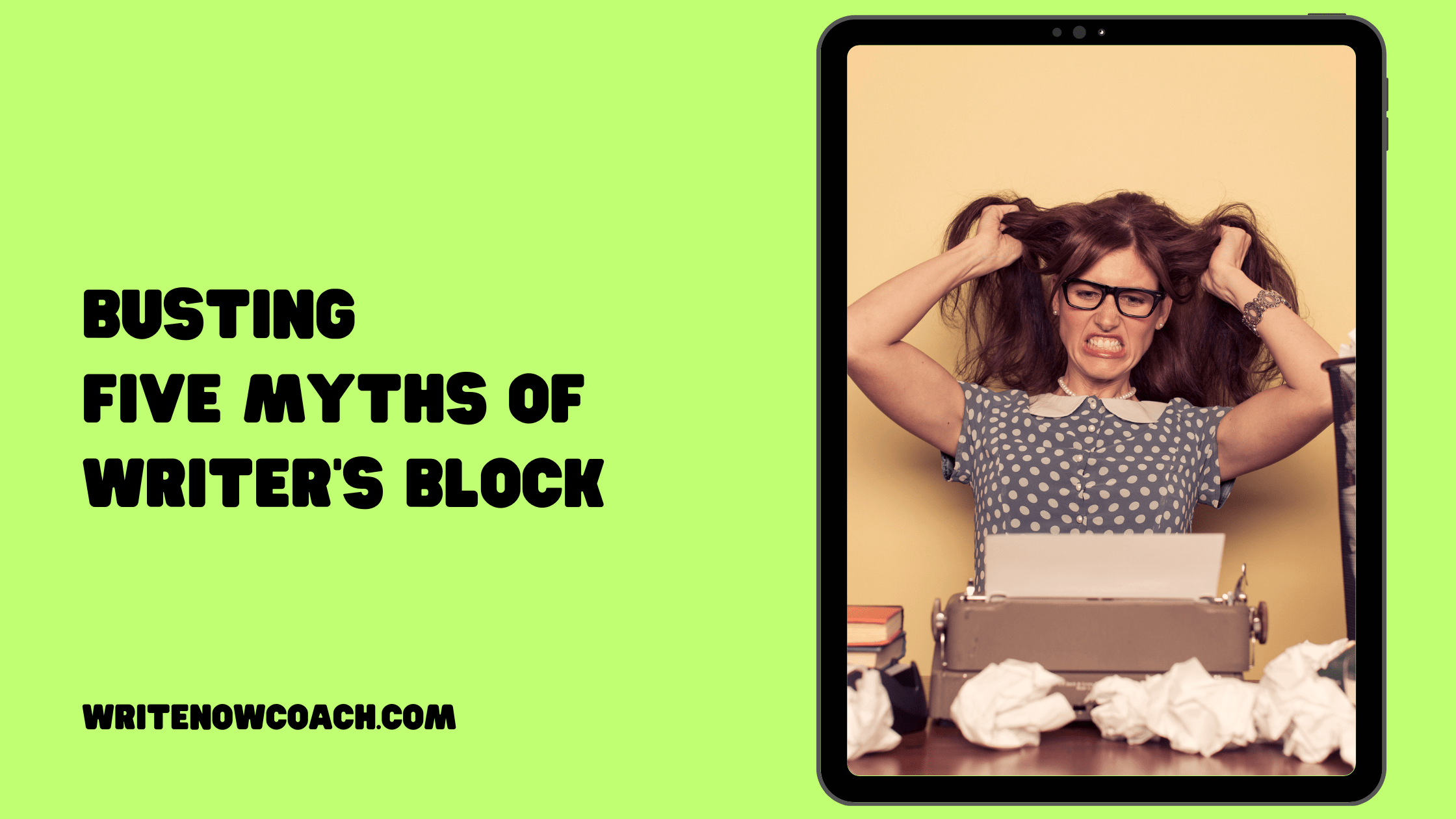Busting Five Myths of Writer’s Block
October 31, 2023
Note From Rochelle
Dear writers,
Happy Halloween and Happy fifth Tuesday!
Thank you to everyone who responded to my plea for help on my writer’s block class. Your comments have helped me a lot. If anyone else wants to let me know what causes writer’s block for you, please respond to this email with your thoughts.
If you are one of those people who struggles with writer’s block, you might want to attend my new workshop. (If you are not one of those people, please forward this to a friend.) I’ll be teaching the class with EFT expert Liesel Teversham on how you can overcome writer’s block using EFT. I’ll be presenting my tools for diagnosing writer’s block and easy interventions you can take to bust the blocks and write. Then Liesel will work with you on clearing emotional blocks. If you ever have felt blocked, procrastinate regularly, or experienced imposter syndrome, this workshop is for you. Learn more and sign up here: WRITER’S BLOCK WORKSHOP.
For today’s tip, I’m giving you a small taste of what I’ll be talking about during the workshop: five myths of writer’s block.
Happy writing,
Rochelle, the Write Now! Coach
Busting Five Myths of Writer’s Block
by Rochelle Melander
Writer’s block. People talk about it a lot. Sometimes we use it as an excuse for why we haven’t been able to write. Or we whisper our worries like a superstition, what if writer’s block hits in the middle of writing our next book?
The idea of writer’s block is often surrounded by unhelpful myths. These ideas keep people from even trying to write (What if I fail?). Here are five of the myths I hear about writer’s block. Let’s bust them!
Myth One: Professional writers never get writer’s block.
We’d like to think that people who write for a living—journalists, novelists, technical writers—never experience writer’s block. How could they get stuck when they produce so much work?
Truth: Professional writers have learned how to diagnose and treat writer’s block. This was my big lesson from all the helpful notes you sent me last week. Those of you who wrote to me about your writing habits have perfected your tools for avoiding and overcoming blocks.
Myth Two: If you were inspired, you wouldn’t get writer’s block.
This myth often comes with notions that “special people” get inspired and the rest of us don’t. When we feel uninspired, we think that maybe if we bought the perfect journal, the right pen, and listened to the latest inspirational podcast, we’d find the aha moment we’re looking for.
Truth. While inspiration can be magnificent, it’s not a magical writing potion. Inspiration usually hits WHILE you are writing. And those people who get those amazing hits of inspiration? They’re usually writers who write daily and have already primed themselves to receive inspiration. (They’re probably also writing on the back of an old envelope.)
Myth Three: Writer’s block is always due to an emotional issue.
The emotional writer—it’s a trope that’s somewhat true and often served alongside the tales of writers who needed alcohol or drugs to write. Dorothy Parker used alcohol to fuel her writing. Elizabeth Barrett Browning used the amphetamine Benzedrine. The poet Langston Hughes said, “I’ve never felt so unpoetic in my life. I suppose I’m not quite miserable enough. I usually have to feel very bad in order to put anything down.”
Truth. Like with every one of these myths, there’s some truth here. Sometimes our writer’s block has to do with an emotional issue like fear or perfectionism. (We’ll talk more about that at the workshop.) But writer’s block is not always due to our emotional state. Writer’s block can be due to lots of other things too, like being tired or feeling distracted.
Myth Four: Got writer’s block? You must be lazy.
Or maybe you’re the kind of person who likes to talk about being a writer more than you like to write.
Truth: If you’ve got writer’s block, you’re showing up regularly to write. That’s the opposite of laziness: that’s industry in action. If you’re showing up and feeling blocked, you’re probably dealing with something else. Maybe you’re a perfectionist—and when you can’t turn out perfect prose, you freeze. Or maybe you’re overwhelmed by information and don’t know where to start?
Myth Five: Writer’s block is a disease.
Some writers get it, some writers don’t. But once you experience it, you’ll probably always get it.
Truth. Over the years, I’ve spoken to and worked with hundreds of writers who struggle with writer’s block. Some of these are professional writers, some are people who write for work. I’ve come to understand writer’s block as a symptom. It almost always shows up as a sign of something that isn’t working, either in one’s life or in one’s project. It might be that the writer is feeling tired, emotional, or even hungry. It might also be that the writer has too much information or too little to develop into a story. Or it might be that the book or project’s format isn’t working.
The truth about writer’s block?
The key to overcoming writer’s block is learning how to diagnose it. Once you can do that, you can overcome it every single time.
If you’d like to learn more about how to understand and diagnose your own writer’s block and what you can do to prevent it from happening, come to my workshop, Overcome Writer’s Block and Write Now. Of course, it’s always best of you can come live, but the class will be recorded for those who cannot attend.









